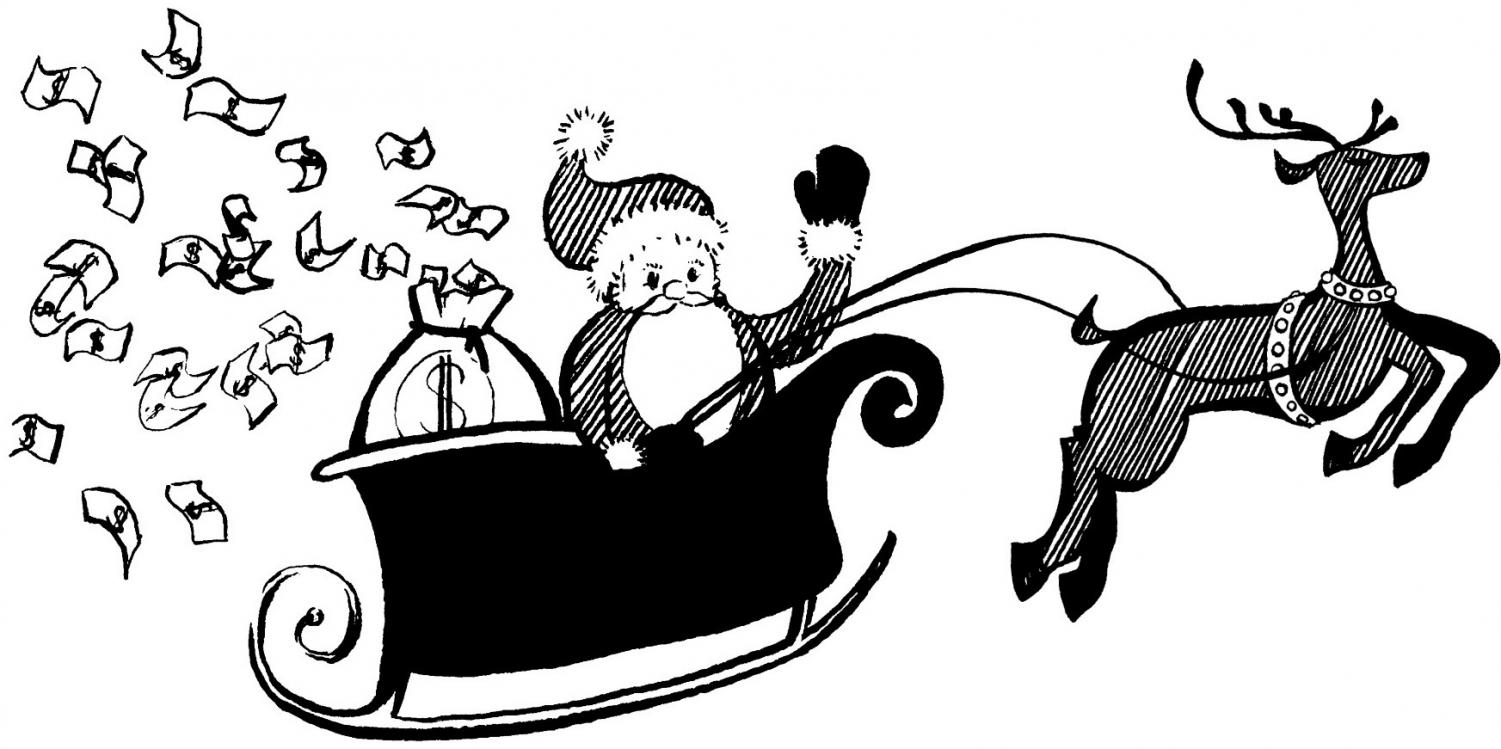Tis the Season for Consumerism
December 7, 2018
As the holiday season approaches, the mechanisms of the capitalist society we live in are becoming increasingly apparent and inescapable. Even on a campus as isolated as Whitman, it is hard not to feel the urge to buy, buy, buy. But at what cost? We all know that excessive spending is “bad,” that it goes against our generally progressive and politically oriented axioms, and yet, we still rush to the mall on Black Friday and pick up countless Amazon boxes from the Post Office; we are hypocrites.
I’m not suggesting we completely forego holiday spending, nor do I think that is even possible. American culture is so entrenched in consumerism that it is hard for many of us to think of success or happiness in terms other than money. More than that, I think we enjoy all this spending, even if we refuse to admit it. We love new things, and corporations take advantage of this materialistic nature.

Companies go so far as to conflate consumerism with the “American Dream.” Reckless consumerism is so pervasive in our society that to refrain from taking part in it feels almost unpatriotic. But what does that even mean? What do we gain from shopping on Black Friday, besides more stuff we probably don’t need and a broken arm?
The holidays force everyone to reflect on the past year, and especially considering the recent tumultuous political climate of the United States, we feel the need to end these stressful times on a high note. Advertisements would have you believe that the only way to handle society is with a new treadmill, but we know, deep down, that the number of presents under the Christmas tree (that is, if you celebrate Christmas) won’t change the world for the better.
This is the part of the article where anyone else would tell you that the real spirit of the holidays is about giving rather than receiving; that we should be appreciative of what we already have and help those who are less fortunate, but I won’t do that. No one reading this article needs me to tell them what they should be doing with their time or money because there are already enough people doing that.
My least favorite part about this time of year is the complete and overwhelming shame I feel for participating in a capitalist system that is thoroughly mandatory. In one sense, we are constantly bombarded with the idea that our joy is directly connected to what we own. Corporations take advantage of traditions like gift giving to sell more products, make more money and bind us to a perpetual cycle of consumerism. And can we blame them? This is the world we live in, and it is not changing any time soon.
In another sense, we are scolded for engaging with and enjoying this same unavoidable system by charities and religious organizations who proselytize virtue and sound ethics, but in reality are no better than the corporations and people they condemn. We watch holiday films that tell us the true meaning of the holiday season is one of love and family, and the commercials that interrupt these films tell us the opposite.
Whoever we listen to, whether we buy or don’t buy, doesn’t matter. In the end, we all must live with the guilt that always accompanies the holidays, not the guilt of wanting to break these capitalist chains we are bound by, but the guilt of being perfectly content within them.



